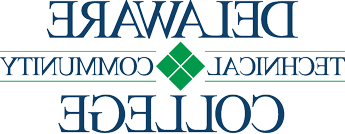Medical Assistant
Associate Degree Program
The Medical Assistant Program will prepare competent entry-level medical assistants in the cognitive (knowledge), psychomotor (skills), and affective (behavior) domains. The Medical Assistant Program will provide instruction in medical assistant courses using a variety of methods, with emphasis on practical application of administration and clinical skills.
Offered at the following campus(es): Wilmington
What You Can Do
In this program, you will gain the knowledge and skills to prepare you for positions such as:
- Medical assistants work alongside physicians, mainly in outpatient or ambulatory care facilities, such as medical offices and clinics
What You Will Learn
Program Graduate Competencies
The Program Graduate Competencies listed below identify the major learning goals related to your specific program of study and identify the knowledge and skills you will have when you graduate to be successful in your chosen field.
- Exhibit effective nonverbal, verbal, and written communication in patient and/or client and family interventions and education and in professional relationships.
- Exercise independent judgment and critical thinking in performance of medical assisting, according to the profession's standards of practice.
- Demonstrate professional patterns of behavior consistent with the profession's code of ethics.
- Demonstrate clinical competence by performing a full range of medical assistant procedures on all patient populations.
- Demonstrate administrative competence by performing a full range of medical assistant procedures on all patient populations.
Core Curriculum Competencies
The Core Curriculum Competencies listed below identify what you will be able to do as a graduate, regardless of your program of study. You will acquire these core competencies through general education courses and program-specific coursework. You will be expected to use relevant technology to achieve these outcomes:
- Apply clear and effective communication skills.
- Use critical thinking to solve problems.
- Collaborate to achieve a common goal.
- Demonstrate professional and ethical conduct.
- Use information literacy for effective vocational and/or academic research.
- Apply quantitative reasoning and/or scientific inquiry to solve practical problems.
Suggested Pathway to Graduation
Semester 1
| Number | Course Title | Credits |
|---|---|---|
| SSC 100 | First Year Seminar | 1 |
| MAT 152 | Quantitative Reasoning | 3 |
| BIO 100 | Medical Terminology | 3 |
| MEA 100 | Intro to Medical Assisting | 3 |
| MEA 150 | Medical Lab Procedures I | 4 |
Semester 2
| Number | Course Title | Credits |
|---|---|---|
| ENG 101 | Composition I | 3 |
| MEA 125 | Medical Office Procedures | 3 |
| MEA 151 | Medical Lab Procedures II | 4 |
| MEA 170 | Pharmacology for Medical Assistant | 3 |
Semester 3
| Number | Course Title | Credits |
|---|---|---|
| SOC 213 | Ethical Issues in Healthcare | 3 |
| MEA 270 | Medical Assistant Seminar | 2 |
| MEA 290 | Medical Assistant Internship | 4 |
Semester 4
| Number | Course Title | Credits |
|---|---|---|
| ENG 102 | Composition II | 3 |
| BIO 110 | Essentls-Anatomy & Physiology | 4 |
| PSY 121 | General Psychology | 3 |
| SPA 135 | Spanish for Healthcare Workers | 3 |
| Or | ||
| COM 111 | Human Communications | 3 |
Semester 5
| Number | Course Title | Credits |
|---|---|---|
| BIO 115 | Nutrition | 3 |
| CIS 107 | Introduction to Computers/Application | 3 |
| SOC 111 | Sociology | 3 |
| PSY 127 | Human Development | 3 |
To complete program requirements, you must pass the above courses and earn at least 61 credits. The number of courses and credits required for graduation may be more depending on college readiness and the elective courses offered in your program major (if electives are a part of the program).
AHTAASMEA
Pursuing a Bachelor's Degree?
This is a Connected Degree program that enables you to complete your associate degree and then transfer to a four-year degree program as a junior. See a program advisor for details!
Alumni | Amanda Saitis
This program is offered at the Wilmington campus.
This program is offered at the Wilmington campus.
This program is offered at the Wilmington campus.
Jennifer Miller
Department Chair
jennifer.miller@airllevant.com
(302) 657-5170

